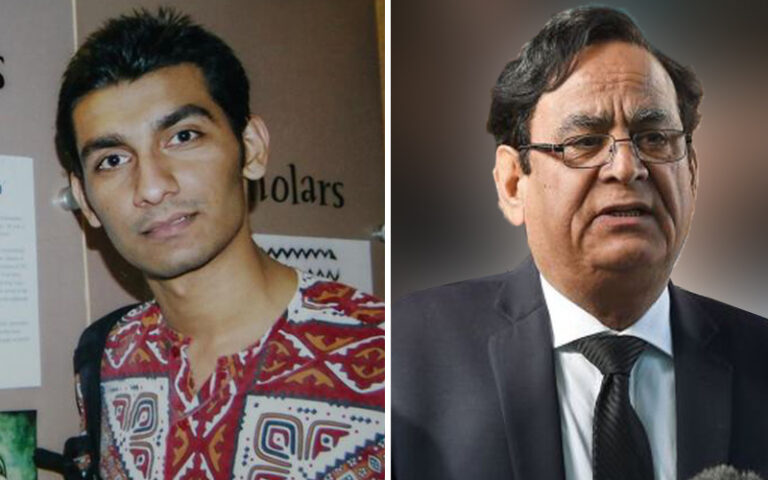
A new hope has emerged for Pakistani university lecturer Junaid Hafeez, who was sentenced to death on blasphemy allegations two years ago, after a leading human rights advocate announced on Saturday that he has been appointed Hafeez’s lawyer for his appeal in the high court.
In a Twitter post, lawyer Saif Ul Malook shared that he had met Hafeez in Multan’s Central Prison and had found him in “good health and spirits”.
Met Junaid Hafeez in central prison Multan today a death convict on blasphemy allegations. He is in good health and spirits. He appointed me his lawyer for his appeal in Lahore High Court.
— Saif-ul-malook (@Saifulm32731039) March 12, 2022
Advocate Saif has successfully overturned a number of convictions for “blasphemy”, including that of Pakistan’s most high-profile blasphemy accused Aasia Bibi in 2018. He most recently oversaw the acquittal of a Christian couple, Shagufta Kausar and Shafqat Emmanuel, who had been sentenced to death on a blasphemy charge.
Saif was also the special prosecutor in the assassination case of Punjab governor Salmaan Taseer, who was gunned down by his police bodyguard Mumtaz Qadri for supporting Aasia Bibi in 2011. Qadri’s execution became the launchpad of the hardline group, Tehreek-e-Labbaik Pakistan (TLP).
Blasphemy is a deeply emotive topic in Muslim-majority Pakistan and is legally punishable by death. While no one has ever been executed for the offence, dozens of people accused of blaspheming have been killed by vigilantes.
Junaid Hafeez’s case was declared “extremely sensitive” after his lawyer and prominent human rights activist Rashid Rehman was killed in 2014 by unidentified men for defending the academic.
Talking to Kross Konnection, Advocate Saif said that he had been hired by Junaid Hafeez to challenge the death sentence handed to him on Dec 21, 2019.
“The appeal was filed in the Lahore High Court’s Multan Bench within the 7-day deadline after the conviction but it is yet to be heard by the court. It’s likely that it will be taken up in a couple of months which will give me sufficient time to prepare my arguments,” he said.
Speaking in a weekly show on legal awareness, Advocate Saif discussed the obstacles in the course of law in blasphemy cases.
WATCH VIDEO:
THE JUNAID HAFEEZ BLASPHEMY CASE
Junaid Hafeez, a lecturer at the Bahauddin Zakariya University in Multan, was accused of disrespecting Prophet Muhammad (PBUH) and the Holy Quran verbally and on Facebook in 2013.
A trial court in Multan sentenced him to death in 2019 after a lengthy trial. He has remained in solitary confinement since 2014, after his lawyer, Rehman was murdered. The attack came after Rehman had been threatened in open court by religious leaders and lawyers associated with the prosecution.
According to a report, the lawyer who represented Hafeez during the trial described the atmosphere in court hearings as “intimidating”. He said the “police’s failure to apprehend those who shot Rehman dead signaled impunity for other would-be vigilantes”.
Hafeez’s conviction had drawn widespread condemnation from international and local human rights organisations, including Amnesty International and Human Rights Commission of Pakistan (HRCP).
While Amnesty termed Hafeez’s conviction a “travesty”, the HRCP said it was “dismayed by the verdict”. “HRCP believes that the blasphemy laws are heavily misused,” it said in a statement.
“In five years, at least eight judges have heard Mr Hafeez’s case, making a fair trial virtually impossible. Meanwhile, he has undergone six years’ imprisonment in solitary confinement,” the HRCP stated.
Over 90 people have been killed in connection with blasphemy accusations in Pakistan since 1985, according to rights activists and media reports. The murdered include those accused of the crime, people acquitted by the courts, their lawyers, family members and judges connected to their cases.